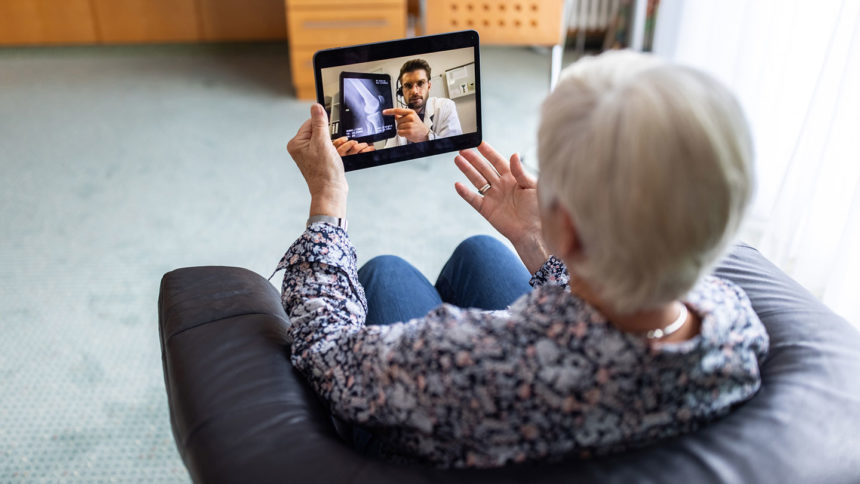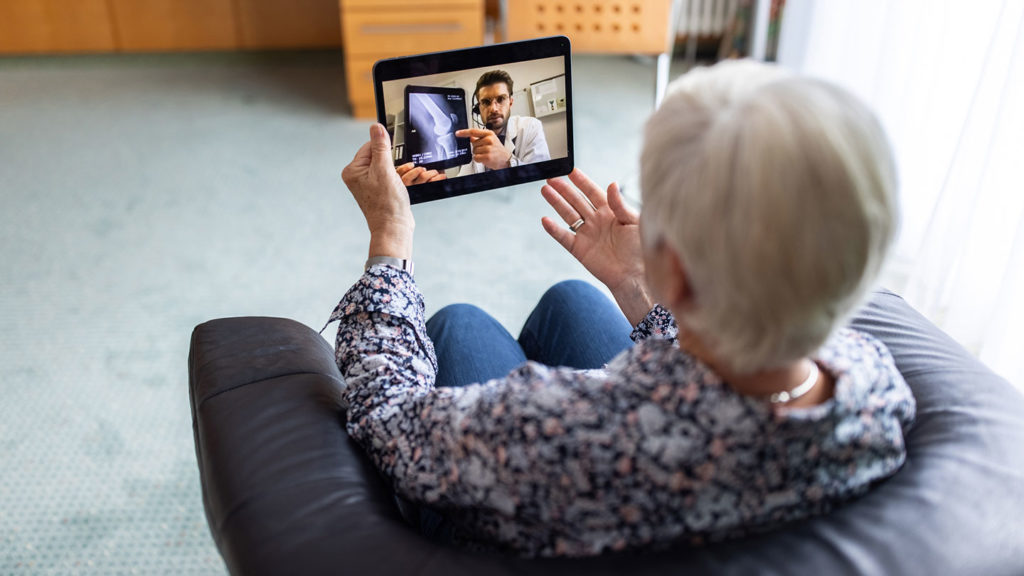

Maintaining Medicare beneficiaries’ access to telehealth services, especially for behavioral health, must remain an initial priority over payment reform or quality measurement, members of a congressional advisory panel said Thursday.
The Medicare Payment Advisory Commission weighed its strategy on setting telehealth guardrails a day after a key House of Representatives committee held a hearing on 15 pieces of telehealth-related legislation.
The Centers for Medicare & Medicaid services expanded the use of telehealth by Medicare beneficiaries at the beginning of the pandemic, and Congress previously voted to extend those waivers beyond the end of the public health emergency. But Congress must act again by year’s end to keep access from reverting to the few specific rural uses that were permitted prior to 2020.
Congress has already agreed to make permanent the use of telehealth for behavioral services at home, but in 2025, a requirement for an annual in-person visit would be required to maintain virtual care access.
Though numbers share by MedPAC staff showed use actually declined between the pandemic’s most restrictive days in early 2020 and the end of 2022, a new AARP survey finds that 73% of adults 50 and older used telehealth once in the past year and that 90% of those said they were “very” or “somewhat satisfied” with the experience.
Skilled nursing providers have said increased access to telehealth specialists, including behavioral health providers, has been critical to them at a time of widespread nursing and clinician shortages.
That was a theme echoed by several commissioners who said during their Thursday morning meeting that they would encourage a position that backs permanent expansions and reduces barriers such as in-person requirements.
“In this space, the highest-priority problem we’re trying to address is access, and the secondary problems are around quality and program integrity,” said Commissioner and geriatrician Scott Sarran, MD. “Access is front and center. We know that’s an issue, whether that’s rural, whether it’s challenged populations. We know access is right in front of us as a major issue, whereas quality and integrity, we just have some speculation.”
Behavioral telehealth growth targeted
He emphasized the importance of telehealth expansion to behavioral healthcare, which has seen significant growth (from 4% to 21%) in telehealth-only providers. Behavioral health accounted for about 40% of telehealth visits in 2022, according to MedPAC data.
MedPAC analyst Brian O’Donnell told commissioners that he’s heard concerns about a specific telehealth expansion that allows beneficiaries to receive care at home rather than in a medical setting.
“Some have expressed concerns that this policy may lead to a proliferation of telehealth-only providers who do not provide any in-person services,” O’Donnell said. “The concern is that such providers would not incur the costs of maintaining an office or other items such as supplies that are only needed for in-person visits.”
Given equitable pay, that might encourage more clinicians to conduct telehealth only, “which could jeopardize access to in-person care,” O’Donnell said. But he also added that lowering payments for virtual visits (not largely covered at the same rate as an in-office visit) would produce only modest savings and also might discourage entry into behavioral health services.
“In the behavioral health space, we should do nothing to impede market innovation,” Sarran later commented. “Given the huge challenges to access with behavioral health, let’s not impede it by turning too quickly to regulation and putting brakes on things.”
O’Donnell said MedPAC could offer Congress alternative ways to monitor telehealth-only providers rather than requiring beneficiaries to have an annual in-person visit. CMS, for instance, could increase its scrutiny of billing outliers, meaning those in Medicare who bill for more visits than expected. Several commissioners embraced that suggestion.
“Looking at outliers in the billing seems like a good strategy,” added Tamara Konetzka, PhD, a voluminous long-term care researcher with the University of Chicago. “The emphasis shouldn’t be on regulation here.”
Data presented by MedPAC staff Tuesday did not delve into safety or quality, nor did it differentiate between audio-only, video-enabled sessions or those using additional services such as digital vital sign tools or remote monitoring. Several commissioners defended the use of audio-only services, especially for rural beneficiaries who might have the most need or be serviced by facilities with unreliable internet.
Future approach
Commissioner Brian Miller, MD, of Johns Hopkins University, also urged his fellow members and MedPAC staff to take a forward-thinking approach to evolving telehealth policies as the nation continues to grapple with too few doctors, nurses and assistants.
The skepticism that for so long stymied broad use of virtual care is now being applied to AI-influenced services and could thwart some services that bring added value to Medicare and better support patients, Miller warned. He encouraged staff and commissioners to view telehealth as a spectrum of services and support each service “if it meets the beneficiaries needs in an efficient, safe and cost-effective fashion.”
“We didn’t pay for telehealth for 20 years. We stuck our heads in the sand, collectively, and were worried about fraud, waste and abuse and had an unnecessarily restrictive policy,” he said. “As a consequence, looking at the data presented here, we would have prevented, if we hadn’t changed our policy, we would have prevented 5 million telehealth visits in quarter four of 2022 and would have either required those beneficiaries to go without care, or somehow get to their clinician’s office. That’s not really good policy.”
MedPAC is not making new recommendations to Congress on telehealth this spring but will continue its work, said Chair Michael Chernew, PhD, of Harvard Medical School. He said data shared Thursday showed that previous commission concerns about “rampant” abuse of telehealth “didn’t materialize, which gives us a little more leeway to be a little more permissive on the side of permitting innovation and not worrying quite as much about what’s going to happen.”
Still, he said, the commission must keep program integrity at the heart of its advisory efforts.




